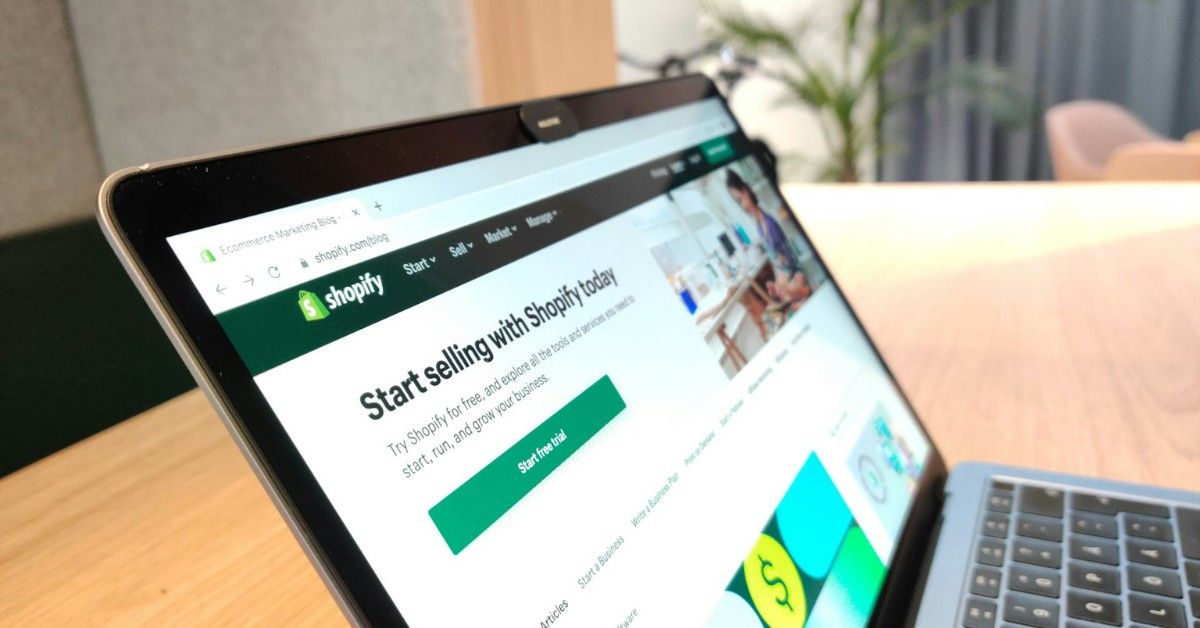Domain name? Check!
Business name and business plan? Check!
Marketing strategy in place? Check!
So, you've taken the leap of running your own business.
And as you may know, one of the most crucial times for your new business is...
Raising startup funding!
Financing your new business is essential for the start and growth of your business.
But first, a warning:
The process can get overwhelming. It's hard to know where to start and where to ask for funding.
To help you, keep reading for the ten achievable startup funding available for you.
Before we start, here are the key points you'll learn:
- The definition of startup funding
- Different types of funding
- Ten ways to finance your startup
- How to get started on your funding
Let's dive in!
Starting with...
What Is Startup Funding?
Startup funding is the capital that supports a new business in its initial venture. The funding comes in different ways and types.
Let's jump into...
What Are The Different Types Of Funding For Your Small Business?

Keep this in mind...
Your business will go through different rounds of funding.
For young businesses, it can start with...
Pre-Seed Funding
This round of funding is not usually part of the traditional route.
But pre-seed funding happens at the earliest stage of a business. The investments are generally from
friends and family, or other startup founders.
As the small business finds its footing, this round can also last for a couple of years or more.
The more traditional first round of funding option is...
Seed Funding
This is the initial funding for your business. It's called a "seed" because it's used for the growth of your business.
You'll use this capital for steps such as product development and market research. You can also use it to hire your founding team for the steps.
Your seed funding can range from $10,000 to $2,000,000. It depends on how much money you require according to your business plan.
Once you have a product and a customer base, you can continue to...
Series A Funding
You can ask for this funding to optimize your customer base and products.
With series A funding, you can also develop a strong strategy for a profitable business. Traditional lenders usually enter within this round. We'll get into this more later.
Up next is...
Series B Funding
Want to take your small business to the next level? Then you can look for Series B funding.
This is for small businesses that are past the development stage. You can go on with expanding your market reach, sales, and customer support.
It's the funding you use to meet the demand of your ongoing business.
Sounds a lot like Series A?
Well, they are alike when it comes to the process and people involved. But with series B, you have a key investor that engages other investors.
Now that you know the rounds you'll go through, let's get into...
10 Ways To Fund Your Startup

To help you decide which suits your business decisions, below is the list of startup funding you can consider. The first one is...
1. Personal Savings
Sounds simple, isn't it?
After all, you are the first investor for your business.
This method is called "bootstrapping."
You use your own capital, cash, or assets. That includes mortgages or credit lines on your home.
Plus, using your personal savings in the early stages shows investors that you have a long-term commitment to your business.
You can also go this route if startup business loans are not an option for you.
You can also consider borrowing money from...
2. Friends And Family
This might be the easiest way to get your ..
Early-stage companies often start with funding from the people around them. Ultimately, they are easier to convince to invest in your dreams than traditional business loans.
The loans you get from family and friends also mean they may give it to you with little (to no) interest.
To avoid personal conflicts, it's best to involve a legal expert in this matter before committing. Doing so will clear everyone's expectations about the personal loan.
Business owners also often look for...
3. Angel Investors
Yep, you read that right.
It may sound too heavenly. And you're right about that, too!
You see, an angel investor is a private individual who invests in the seed funding round.
They are often wealthy people or retired executives who want to invest in exchange for equity ownership.
Not only that, but angel investors can also provide industry knowledge and contact networks.
You can find angel investors through your own network, angel investor networks, or other entrepreneurs. Websites such as AngelList and the Angel Capital Association can also help you find one.
For a more straightforward option, you can also go for...
4. Small Business Loans
Small business owners like you can also look into a business loan.
You can shop around for banks that offer small business loans. Banks often offer a repayment that suits your company's cash flow.
Before you request a business loan, make sure you have a detailed business plan. You should also have an excellent credit score.
But here's the thing...
A bank loan may not be the safest option for your business. If, unfortunately, your startup does not succeed... there will be nothing left on your asset.
If such loans don't suit your needs, you can check for online lenders. Unlike traditional loans, you don't have to own a collateral and can get your funds as soon as possible.
I'm sure you are also considering...
5. Venture Capitalists
Venture capitalists are private investors that finance high-growth companies.
They make up venture capital firms. It's a limited partnership company that looks for businesses that have the potential to give a high return to their investors.
The venture capitalists' partnership means that they invest in one venture capital fund.
If they decide on financing your startup, they'll ask for equity in return.
When looking for a venture capitalist, you have to research their priorities regarding their venture capital fund. It helps you align your goals with theirs.
When pitching, focus on the benefits of your product. Advocate for your team members' skills that can lead their investment to success.
Small businesses also have the option of...
6. Crowdfunding Campaign

Do you have an interesting business model and a knack for social media marketing?
Then this one can be the way for you.
"Crowdfunding" means raising funds through an online campaign. This includes getting different amounts of money from multiple funders.
It's usually done through crowdfunding websites such as Kickstarter, GoFundMe, and Indiegogo.
And guess what?
It's also the safest option to finance your business. You see, your funders are not going to ask you for the money back.
All they want is for your product or service to be delivered well. Or a discount.
Ensure that you have a compelling business history — that means your brand story and your product, as well.
When you start a crowdfunding campaign, it can help you stand out over a lot of businesses that are doing the same thing.
You can also opt for...
7. Small Business Credit Cards
It's true... There are credit card issuers that have offers for small businesses.
A business credit card can provide you with temporary startup funding. You can use the money to make key purchases.
Of course, the card can be connected to your personal credit score. So make sure that you have a solid plan to pay your balance.
To help you better, you can look for credit cards with a 0% introductory Annual Percentage Rate.
You can apply for such a card through your bank or online. Banks like Capital One, Chase, Bank of America, and American Express offer this.
Let's move on to the next one...
8. Startup Incubators
Incubators help startups during their building stages. And they normally don't ask for equity in your business.
Here is how it works...
An incubator provides support during the early stages of your business operations.
You'll have access to their mentorship, utilities, office space, and even meeting with angel investors.
The incubation period can last from three months to two years.
Once your startup matures, you can then apply to an accelerator program. Or enter your production phase on your own.
Looking for "free money"? You can try...
9. Government Grants And Programs
There are a lot of government grants you can take advantage of.
But make no mistake. These grants may be only open to a specific niche or demographic.
For instance, some grants are focused on technology-related industries. Others offer grants to women-owned businesses.
Though if you are based in the US, only non-profit startups can get grants.
For others, the U.S. Small Business Administration (SBA) offers loan programs.
For SBA loans, you can check your lock SBA chapter or Chamber of Commerce for local grant money available.
Lastly, you can apply with...
10. Microlenders
Didn't qualify for a startup loan?
Consider microlending.
These are small loans coming from individuals instead of financial institutions like banks.
These lenders tend to fund minorities or disadvantaged businesses.
Of course, you still have to pay interest. But still, they will get your business up and running.
To round it up here is...
How To Raise Funding For Your Business?
Here's a checklist for you before you look for financing...
- Identify your funding needs. You need to ask yourself, "How much money do I need to attain my goals?" Calculating how much funding you need will help you choose the right move.
- Create a business plan. Investors will look for it before funding you. Your plan should include your target market, profit strategy, marketing plan, and calculated funding needs.
- Gather documents. Financial statements, tax returns, and any business legal documents should be in your hand.
- Research which funding is best for you. Congrats! This blog is a step in the right direction. Do your due research with different types that best suit your business.
- Plan your repayment. Map out how you're going to pay back the money you borrow. Use a business loan calculator so you can fit it into your budget.
And that's how you...
Effectively Finance Your Business!
Just one more thing...
You are the best person to decide which one is the best way for your business.
But whatever you decide, first consider your current standing regarding your finances. This will give you a jump start on deciding.
So get money!
And you know what else is profitable?
When you choose a high-converting Shopify theme.
So choose Debutify! It's not your basic Shopify theme... It's the ultimate Profit Optimization Partner.
With 50+ Add-Ons, you can maximize profits, AOV, and boost conversions!
Would Embedded Finance Fit Your Business Model?




